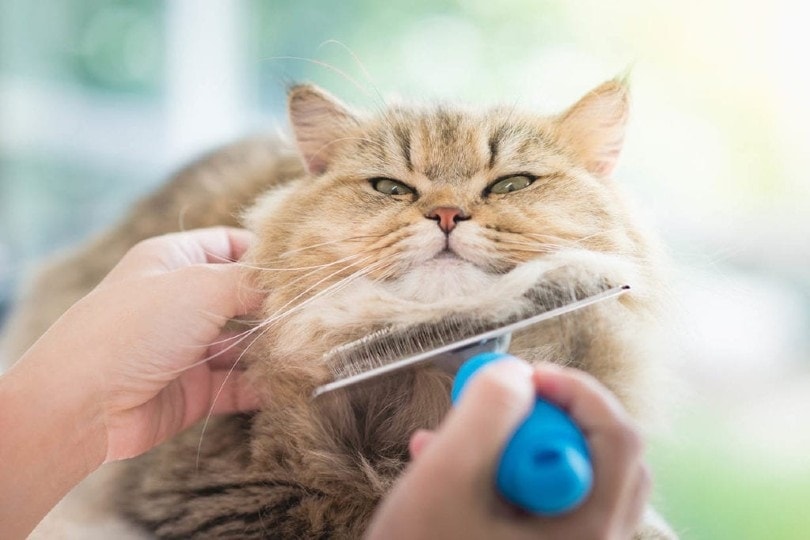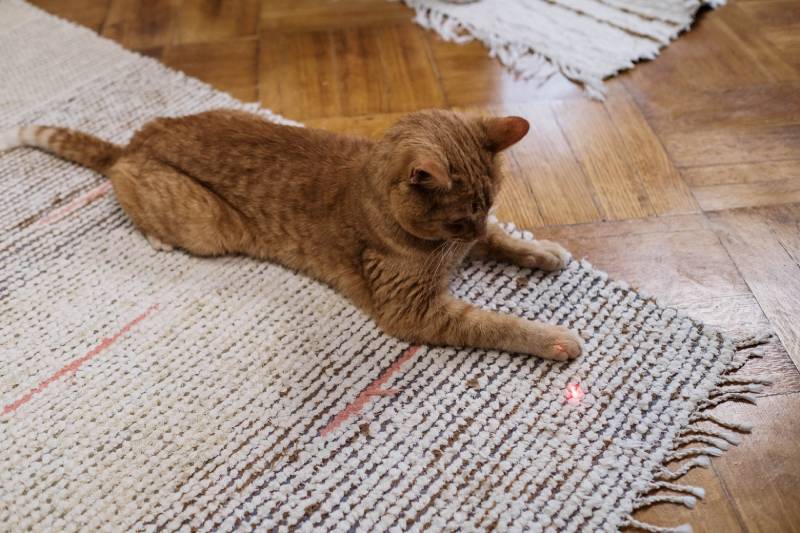Why Does My Cat Keep Sneezing? 5 Vet-Reviewed Reasons & Solutions

Updated on
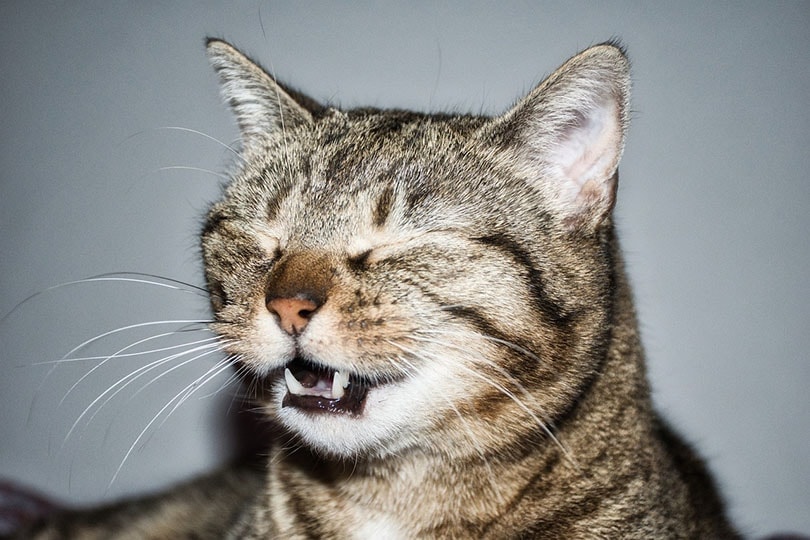
Every once in a while, your cat will let out an adorable sneeze that doesn’t raise any concerns. However, it’s worth paying special attention to your cat if they are experiencing chronic sneezing.
Cats can keep sneezing for several reasons. Here are several common reasons why your cat may be sneezing and what you can do to help your furry friend out.
Top 5 Reasons Your Cat Keeps Sneezing But Seems Fine
1. Inhaled an Allergen or Irritant
Just like how humans sneeze when they have allergies, cats can also sneeze when they inhale an irritant.
The following are common allergens and irritants for cats:
- Cigarette smoke
- Dusty or powdery cat litter
- Dust
- Mold
- Perfume
- Pesticide sprays
- Pollen
- Room deodorizers
If you suspect that your cat’s sneezing because of allergies, be on the lookout for other symptoms:
- Coughing
- Watery eye discharge
- Redness of the eyes
- Itchy or inflamed skin, hair loss
- Swollen paws
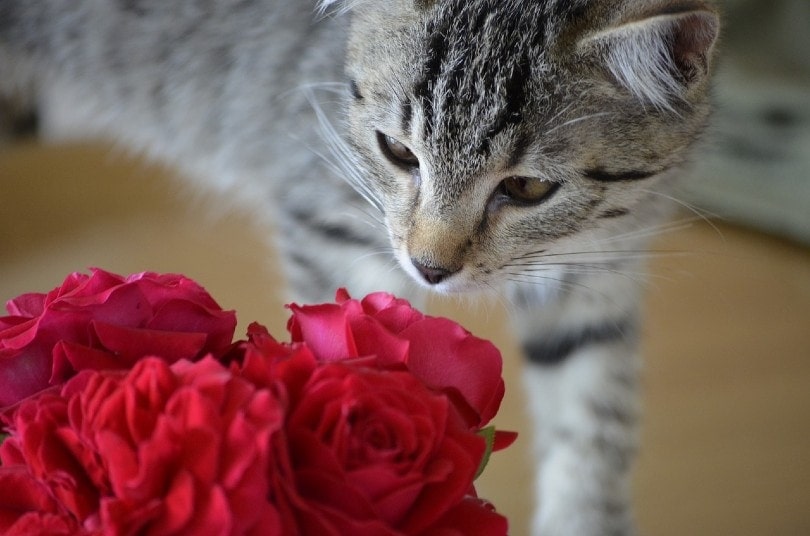
2. Obstruction in the Nasal Passage
Sometimes, cats may inhale something that gets stuck in their nasal cavity or nasal passage. They can be trying to get rid of the object by sneezing it out.
Listen to your cat’s breathing. If your cat shows labored breathing or is breathing through its mouth, there’s a good chance that something is stuck up its nose. Make sure to contact your veterinarian right away. Your veterinarian can expertly remove any obstruction from your cat’s nasal cavities.
Nasal tumors and localized fungal infections may also cause obstructions in the nasal passage.
3. Respiratory Infection
Sometimes, sneezing is a symptom of a respiratory infection. Upper respiratory infections (URIs) can be caused by viruses or bacteria.
If your cat has a URI, it will also experience some of these other symptoms:
- Coughing
- Discharge from eyes and nose
- Fever
- Lack of appetite
- Lethargy
Mild URIs can last from anywhere between 7 to 21 days. They typically don’t warrant a visit to the veterinarian’s office and often resolve themselves.
Common viral causes for URIs in cats include feline herpesvirus and calicivirus.
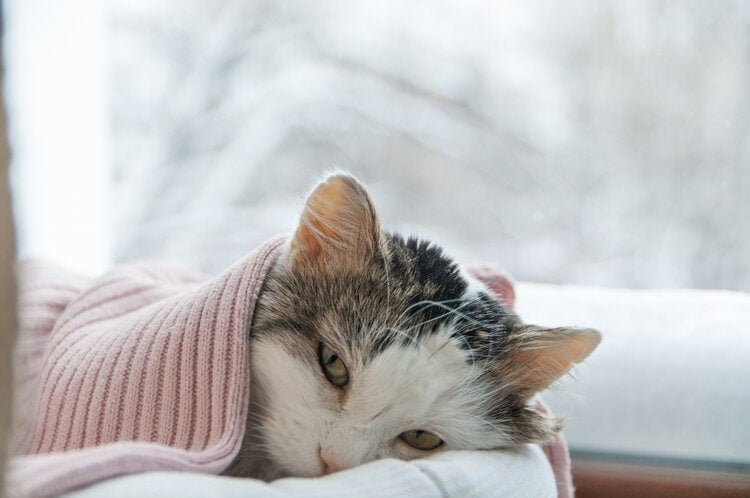
4. Inflamed Nasal Cavity or Sinuses
Sneezing can also be a symptom of an inflamed nasal cavity or sinuses. Cats experiencing inflammation in these areas can also exhibit other symptoms:
- Discharge from eyes and nose
- Labored breathing
- Breathing through mouth
- Wiping or pawing at the face
- Reverse sneezing
If your cat has inflammation, a quick visit to the veterinarian’s office should help to effectively treat your cat’s condition. It’s common to give cats antibiotics and a nasal flush to clear up nasal passages. Sometimes, veterinarians will also give cats steroids to help open their nasal cavities.
5. Dental Disease
Severe cases of dental disease and infections can cause sneezing. The roots of the teeth lining the upper jaw are very close to a cat’s nasal passage. Therefore, if the tooth infection is deep enough, it can affect a cat’s respiratory system, causing them to sneeze.
If you suspect dental disease, be on the lookout for other symptoms:
- Chronic odor from mouth
- Hypersalivation
- Bleeding from mouth
- Difficulty eating
- Inflamed gums
- Pawing at the mouth
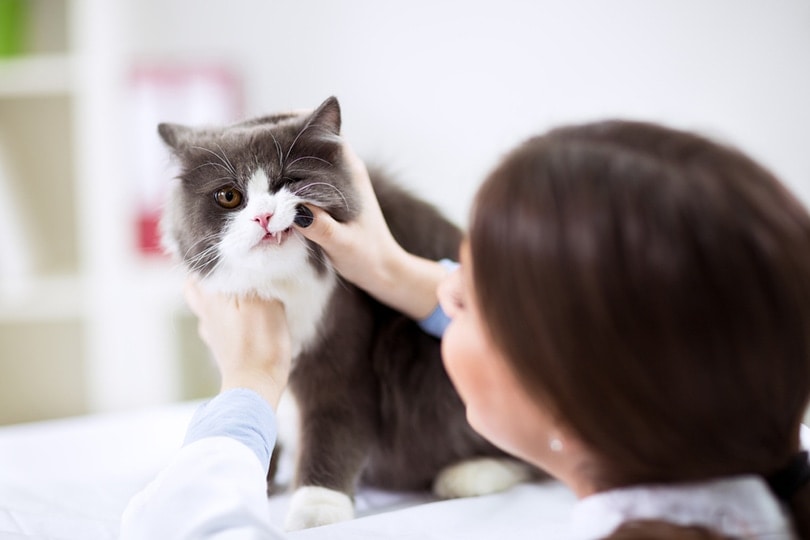
What To Do If Your Cat Keeps Sneezing
If you notice your cats sneezing multiple times a day, there are some things you can do to help them out.
1. Monitor your cat’s condition for the next couple of days.
Sneezing doesn’t always mean that you have to take your cat to the veterinarian. Sometimes, it just goes away on its own. So, keep a special eye out on your cat for a couple of days and look for any other accompanying symptoms. If your cat exhibits any extreme symptoms, such as green or bloody discharge from the nose, call your veterinarian right away.
2. Remove any potential causes for sneezing.
Examine your living space and look for any items that could trigger your cat’s sneezing. Introducing new fragrances, such as perfumes and candles, can cause an allergic reaction in cats.
Dust and cigarette smoke can also cause cats to sneeze. If you’ve changed your cat litter brand recently, check to see if the cat litter is too powdery. Cats can accidentally inhale fine kitty litter, which irritates their noses and causes them to sneeze.
Remove any potential allergens or irritants and keep monitoring your cat’s condition. Check to see if the amount of sneezing reduces.
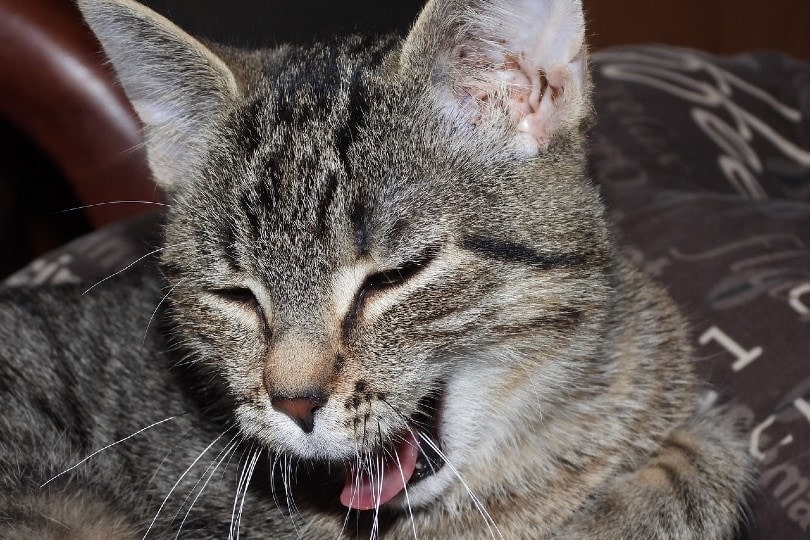
3. Call your veterinarian.
If your cat’s sneezing persists for more than a couple of days, contact your veterinarian to schedule an examination. You should also contact your veterinarian if you notice that your cat’s condition worsens.
Veterinarians can perform several exams and tests to diagnose the cause of your cat’s sneezing. They can use X-rays or perform a rhinoscopy to get a better picture of what’s going on in your cat’s respiratory system. Sometimes, they may also collect small biopsies from the nose to check for organisms.
4. Follow through on medication treatment.
Cats will often receive antibiotic medication for respiratory infections. Cats with allergies may also receive a medication prescription.
Make sure to completely follow through on treatment, even if your cat’s condition seems to improve before it takes all its medication. Stopping treatment prematurely can cause infections to resurface and make you schedule another visit to your veterinarian.
Wrapping Up
Cats can sneeze for a variety of reasons, including allergies, infections, and inflammation. Make sure to monitor your cat’s sneezing for the next few days, and if the sneezing persists or if your cat’s condition worsens, schedule a visit with your veterinarian.
Featured Image Credit: Jupiter_79, Pixabay

